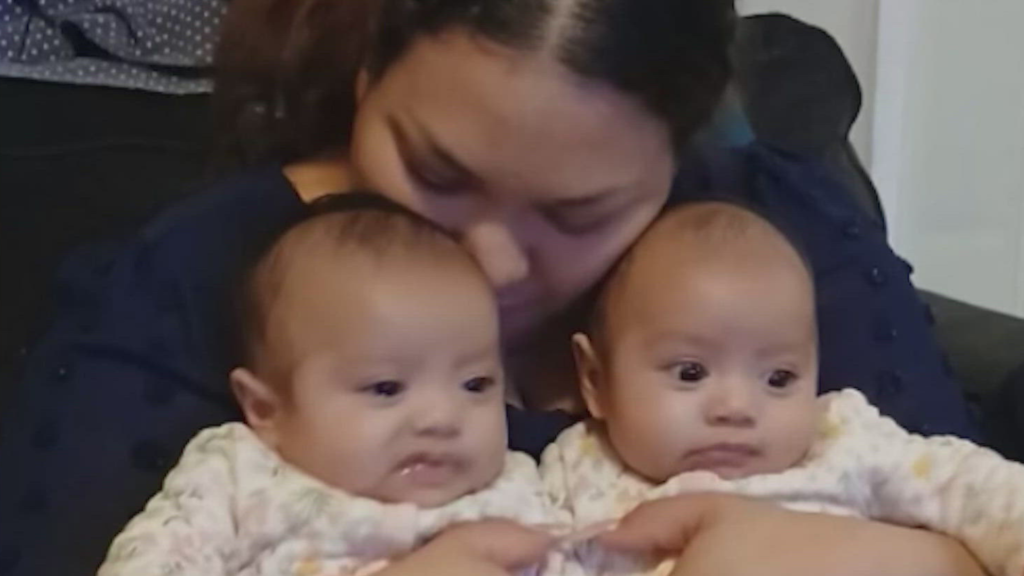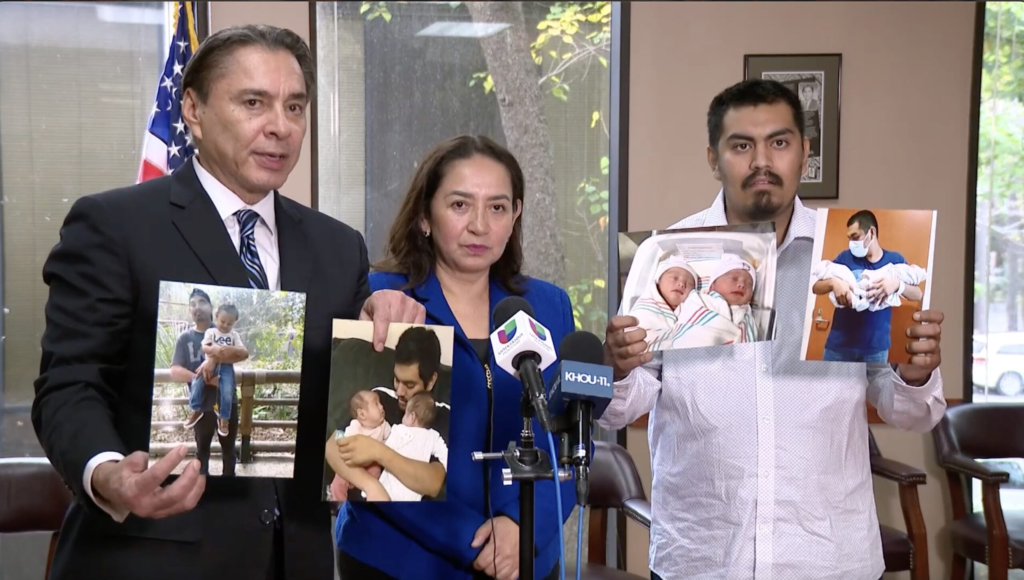
The Immigration and Customs Enforcement (ICE) recently deported a 23-year-old mother of four, Cristina Salazar, and her children to Reynosa, Mexico.
Two of the children are newborn U.S. citizens, making the decision especially contentious. The deportation occurred after Salazar missed an immigration court hearing in Houston, reportedly due to an emergency medical situation.
Salazar, who had an emergency cesarean section to deliver twins just a month prior, was arrested along with her children during what the family expected to be a routine meeting about her immigration case.
According to her husband, Federico Arellano Jr., a U.S. citizen, the family had notified the immigration court about her medical situation and believed the hearing would be rescheduled.
However, when the family arrived at the designated location for what they thought was a discussion about the case, ICE agents arrested Salazar and her children.

Arellano described the emotional scene, saying his children cried as they were separated from him and their mother. “They were treated as if they were high-risk criminals,” the family’s attorney stated in a news release.
Arellano expressed his disbelief and heartbreak, explaining that the arrest was unnecessary and unjust. He and Salazar’s attorneys argued that the missed hearing constituted a “technical violation” due to the emergency cesarean section and should have been easily resolved.
“The issue of Cristina missing her court hearing was a technical violation that could have been resolved,” said family attorney Isaias Torres.
The family had reportedly contacted the immigration court to explain Salazar’s medical condition. They claimed they were told the hearing would be rescheduled. Despite this, ICE agents detained Salazar and the children when they arrived for the supposed follow-up meeting.
Arellano recounted the distressing moment when ICE agents took his wife and children into custody. He said the children, including the newborn twins, were crying and confused about being separated from their father.
“I tried to explain what happened, but ICE agents threatened me if I interfered,” Arellano said. “It was a shocking and devastating experience for my family.”
Immigration lawyer Isaias Torres emphasized the trauma caused by the separation: “The children were shocked and surprised that they were being separated from their parents.”
The deportation of Salazar and her children raises questions about ICE policies and procedures, particularly in cases involving U.S.-born children and emergency medical situations. Critics argue that such actions reflect a lack of compassion and flexibility in the immigration system.
Salazar’s case has drawn widespread attention, with advocacy groups and legal experts criticizing ICE’s handling of the situation. “This is not just a technical issue; it’s a humanitarian one,” said a spokesperson for an immigrant rights organization. “Separating a mother from her newborns is both cruel and unnecessary.”
Attorneys for the family are now working to address the legal challenges stemming from Salazar’s deportation. They argue that ICE should have exercised discretion given the circumstances of her medical emergency and the family’s proactive communication with the court.
“Cristina and her children were not a threat to anyone,” Torres said. “This situation could have been resolved without tearing a family apart.”
The deportation also highlights the complexities of immigration enforcement under the Biden administration, which has faced criticism from both immigration advocates and opponents.
While President Biden promised a more humane approach to immigration policy, cases like Salazar’s suggest that systemic issues persist.
For now, Salazar and her children are in Reynosa, Mexico, separated from Arellano. Reynosa is known for its dangerous conditions, adding to the family’s concerns for their safety.
Arellano is working with legal representatives to explore options for reuniting with his wife and children and addressing the deportation.
“This has been devastating for us,” Arellano said. “My wife and children deserve to be here with me, safe and supported.”
Salazar’s case underscores the need for reforms in how ICE handles situations involving families, medical emergencies, and U.S.-born children. Advocacy groups continue to call for policies that prioritize family unity and compassion over rigid enforcement.
As the family fights for justice, their case serves as a poignant reminder of the human cost of immigration enforcement policies.

